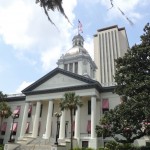 April can be the cruelest month for bills before the Florida Legislature. Proposals that have not advanced by now, on day 30 of the 60-day legislative session, are likely in trouble. In the coming weeks, more will start to die.
April can be the cruelest month for bills before the Florida Legislature. Proposals that have not advanced by now, on day 30 of the 60-day legislative session, are likely in trouble. In the coming weeks, more will start to die.
Much of this year’s school choice agenda is still alive, but there’s a lot to be resolved over before the session is expected to end May 1.
Here’s a look at where some of the issues we highlighted at the start of session stand now.
Charter schools. Some of this year’s charter school proposals have gotten bipartisan support, like giving school districts clearer authority to vet the track records of charter school applicants and creating a new charter school institute at Florida State University. Both of those, along with a provision making it easier for high-performing charters to expand in academically struggling areas, are part of a bill approved by the state House last week.
Another part of that package — a funding backstop for charter schools, supported by school district property taxes — has drawn opposition from Democrats and school districts, and has yet to advance in the Senate. The upper chamber, meanwhile, has combined a range of charter school issues into SB 1552, which is set to be heard again Thursday.
Parental rights and public school choice. Measures giving parents more say over their children’s teachers, more information about spending on schools, and greater freedom to choose among public schools are part of a House bill that has drawn logistical concerns from school districts, which key lawmakers say they intend to resolve. Those provisions are also part of the Senate’s big public school choice package, SB 1552.
Personal Learning Scholarship Accounts. Legislation that would expand the state’s newest parental choice program for special needs students is headed to the floor in both the House and Senate.
Key differences between the chambers involve the groups of students who would be allowed to join the expanded program in its second year and the amount of funding the state would provide, but the measures have gotten broad, bipartisan support. The program is administered by organizations like Step Up For Students, which co-hosts this blog and employs the author of this post.
Dual enrollment. A bill addressing private schools’ concerns over dual enrollment funding is advancing in the Senate, but has yet to be heard in the House.
Digital learning. Digital classrooms legislation is advancing, aimed at helping public schools get a better handle on their technology inventories and strategic plans. The related funding, however, hasn’t been nailed down, and may be decided in budget negotiations late in the session. Keep an eye on both SB 1264 and SB 7050.
Extracurricular activities. The House is advancing high school sports legislation aimed in part at reconciling the growth of school choice with anti-recruiting regulations in high school athletics, and at expanding access to other extracurricular activities for students in private and charter schools. The bill has drawn criticism from the Florida High School Athletic Association, which could see its status as the state’s designated regulatory body for interscholastic athletics threatened. The measure has also yet to be heard in the Senate, which should put it in jeopardy, since the main education policy committee may not meet again.
Charter districts. The House has already passed legislation creating a pilot program allowing select school districts to offer charter-like autonomy to some of their principals. The Senate has included a version of the idea in its big school choice package.


